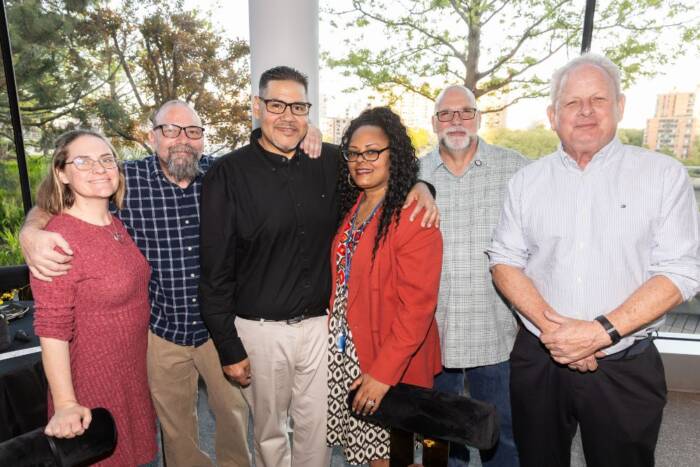Immunologist Michel Nussenzweig elected to Institute of Medicine
Immunologist Michel C. Nussenzweig, head of Rockefeller University’s Laboratory of Molecular Immunology, has beenelected to the Institute of Medicine, the health and medicine branch of the National Academy of Sciences. Announced today at the institute’s annual meeting in Washington, D.C., Nussenzweig is among 65 new members and five foreign associates(opens in new window) elected this year.
Nussenzweig, who is Sherman Fairchild Professor at Rockefeller and a Howard Hughes Medical Institute (HHMI) investigator, combines a variety of techniques from biochemistry and molecular biology with gene targeting and transgenic technologies to get an atomic-level look at the workings of the immune system. His research on adaptive immunity — the part of the system that adapts to new pathogens and primes the body against future encounters with them — focuses on B lymphocytes and antibodies; his work on innate immunity — which defends the body against all pathogens generically — focuses on dendritic cells(opens in new window), the sentinels of the immune system, discovered at Rockefeller in 1973. Nussenzweig has provided important insights into how autoimmune diseases develop and has developed methods that target specific antigens to dendritic cells, which may lead to both vaccines against pathogens and treatments for autoimmunity.
Nussenzweig obtained his Ph.D. working with Ralph M. Steinman at Rockefeller University and an M.D. from New York University School of Medicine. He completed clinical training at Massachusetts General Hospital and postdoctoral training in the lab of Philip Leder in the genetics department of Harvard Medical School. He returned to Rockefeller as assistant professor in 1990 and became associate professor in 1994 and professor and senior physician of The Rockefeller University Hospital in 1996. He has been an HHMI investigator since 1999.
Nussenzweig is the recipient of numerous other awards, including a Lee C. Howley Sr. Prize for Arthritis Research, an American Association of Immunologists-Huang Foundation Meritorious Career Award and a Solomon A. Berson Alumni Achievement Award for Basic Science from New York University. He is a member of the American Academy of Arts and Sciences and the American Society of Clinical Investigators.
Established in 1970 by the National Academy of Sciences, the Institute of Medicine has become recognized as a national resource for independent, scientifically informed analysis and recommendations on health issues. Institute studies and initiatives during the past year include, among many others, a review of the long-term effects of traumatic brain injury among military personnel; an assessment of the health effects of lack of insurance; and a blueprint for American leadership in advancing global health. With this year’s election, the institute counts 1,610 active members, 75 emeritus members and 93 foreign associates. Fourteen Rockefeller University investigators are Institute of Medicine members.


